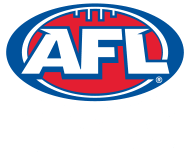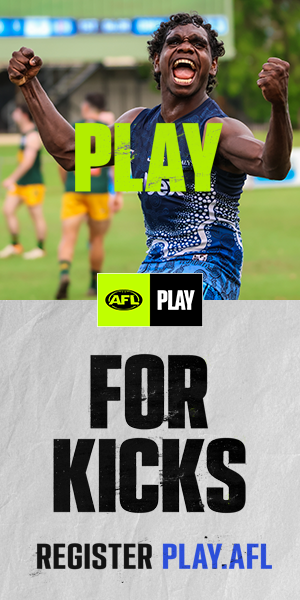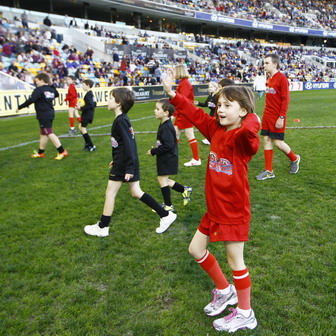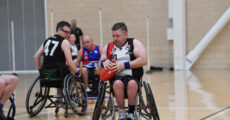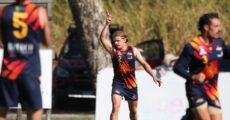The AFL today released its national participation numbers for 2012 with the game’s participation base continuing to reach record numbers throughout the country.
In 2012 national participation has increased to 844,799, representing a 6.81% increase from a 2011 total of 790,905 participants.
Across the four key participation areas of NAB AFL Auskick, clubs, schools and Cadbury AFL 9s, this year’s 6.81% increase is the largest rate of growth since 2008 and ensures the AFL remains on track to reach its forecasted target of one million participants by 2016.
In 2012 the number of NAB AFL Auskick participants reached 182,846, representing a 9.44% increase from the previous year, which is the biggest increase in NAB AFL Auskick participation since 2007.
The most substantial area of growth over the past 12 months has come from the number of females playing Australian football – the participation base of females jumped a massive 43.17% in 2012.
Significant participation growth was recorded on a regional basis throughout the country, with Queensland (up 10.04% to 137,989) and NSW/ACT (up 8.64% to 148,230) leading the way. South Australia was the only region not to record an increase with -2.06% growth in 2012 after registering a 13% increase in 2011.
The Northern Territory recorded the greatest overall regional growth, reaching 27,254 participants, up 29.18% on 2011.
Participation numbers of the newest form of the game, Cadbury AFL 9s, continued to grow significantly in 2012 to reach 12,536 participants, representing a 167% increase on the previous year.
International participation has also increased by 10% in 2012, rising to 110,292 participants outside Australia.
AFL General Manager – National and International Development and General Counsel, Andrew Dillon, said: “The growth of our participation base, across all levels of the game, is vitally important to the health of Australian football so it’s encouraging to see significant growth in 2012.
“Through a wide range of programs right around the country we are committed to ensuring as many people as possible are able to be actively involved in Australian football.
”The NAB AFL Auskick program continues to provide a pathway for thousands of young kids and the growth rate over the past 12 months has been the largest we’ve seen in five years.
This comes off the back of the ongoing support we receive from NAB and a focus on delivering quality programs at a local community level,” Mr Dillon added.
“We’ve also seen a significant jump in the number of females playing the game as participation continues to grow off the back of the suite of programs on offer to both males and females.
“The development of AFL 9s as a social form of the game has provided us with an opportunity to engage with a new market to grow the game while our club and school football programs continue to provide us with a great avenue for playing the game in safe and inclusive environments.
“We’ve seen growth right around the country but it’s particularly encouraging to see such strong growth rates in the non-traditional markets of Queensland and New South Wales and the ACT.
The introduction of the Gold Coast Suns in 2011 and the Greater Western Sydney Giants this year has been pivotal in increasing awareness and participation of Australian football in those regions.
“As interest in the game continues to grow internationally we’ve again seen an increase in those people playing the game outside of Australia with the strongest participation numbers coming from countries such as South Africa, Papua New Guinea and New Zealand.”
